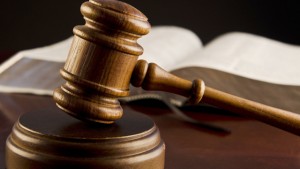 For the first time in the history of Antigua & Barbuda, live video feed from a witness outside of the state was used in a criminal trial in the High Court.
For the first time in the history of Antigua & Barbuda, live video feed from a witness outside of the state was used in a criminal trial in the High Court.
The recently enacted Evidence Special Provisions Amendment Act made this possible on Monday in the ongoing trial of Italian national Umberto Schenato, who is accused of killing his wife on June 3, 2013 at the Epicurean Supermarket parking lot.
According to a press release from the Attorney General’s office “the live video feed evidence was taken from an American citizen from Ohio, who was visiting Antigua & Barbuda on vacation when the incident occurred”.
The witness’s evidence from the video link was led by Director of Public Prosecution Anthony Armstrong, after which the witness was crossed examined by Lawrence Daniel attorney representing Schenato.
Armstrong said the passing of this legislation represents a milestone in the legal development and history of the country. The legislation now makes it possible for witnesses whether for the crown or defence, who are not present in state, to give their evidence wherever they are.
“This will result in tremendous savings for the country, in terms of the state no longer necessarily having to bring witnesses from abroad, therefore saving expenses of airfare and accommodation. Yet still able to have witnesses give their evidence just as effectively as though they were right there in courtroom,” the DPP added.
He said that the process will be highly convenient for the crown, defense and witnesses who are sometimes not able to travel to Antigua & Barbuda for various reasons.
Before the witness’s evidence can be taken, both the crown and defense must give each other at least five days’ notice of their intension to do so.
Commenting on the initiative, Attorney General Steadroy ‘Cutie’ Benjamin stated that this development was yet another step in enhancing the administration of justice by the facilitation of evidence being admissible via live video link, there-by permitting more expedient resolution of matters in the court.
Benjamin said in the past, matters in the high court had to be adjourned because witnesses were overseas and were unable to attend court to give evidence.
